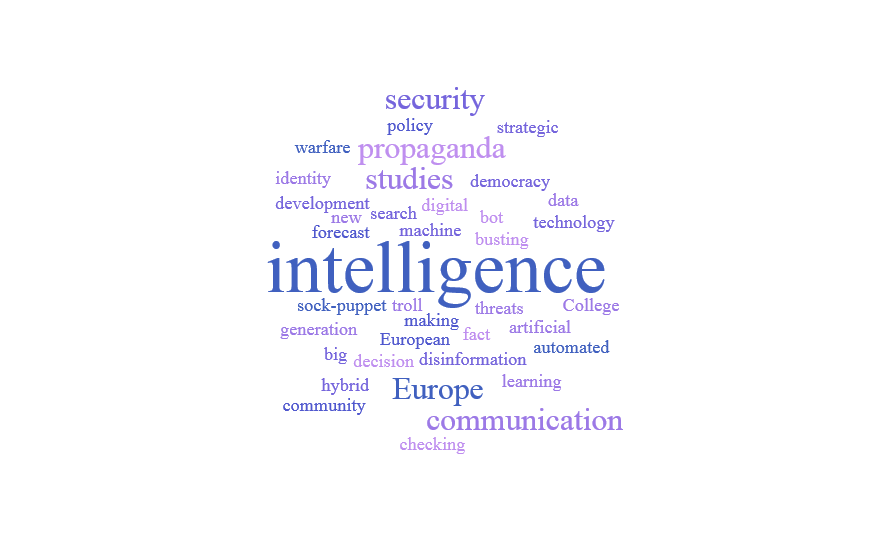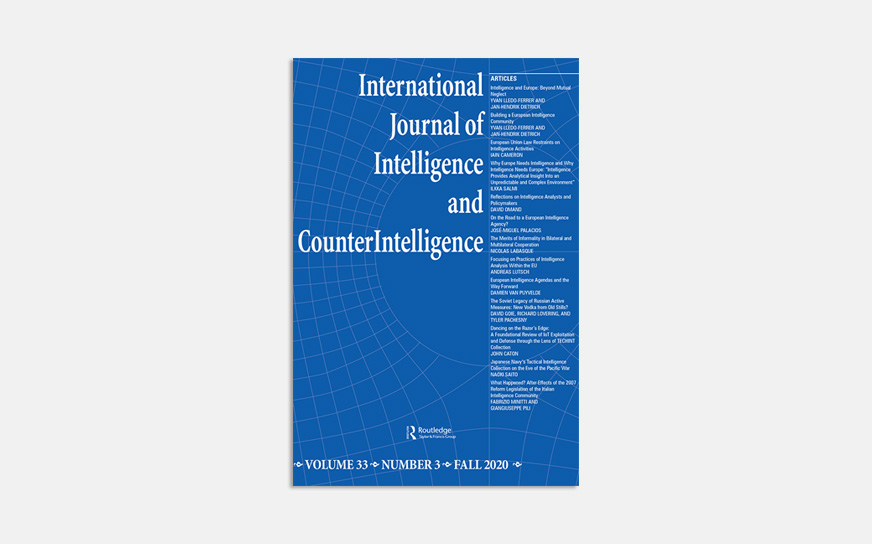
The ICE Bibliography on Intelligence

Intelligence and Space Seminar in Paris

Conclusions - Webinar "European Security Challenges"
In September 2020, the Intelligence College in Europe invited professors from three member countries (Italy, Romania and Finland) to present their vision on European security challenges in the 21st century. They gave their input on the impact of technology on national security, propaganda and disinformation, and hybrid warfare.
The webinar showed Members share, for the most part, similar views over these three topics, and the event paved the way for further exchanges within the College.
Here is the downloadable summary of our conclusions over this webinar.

Special issue of the International Journal of Intelligence and Counterintelligence
The International Journal of Intelligence and Counterintelligence publishes its first special theme issue in its 35-year history (available here). This issue, devoted to “Europe and intelligence”, includes contributions to the first thematic seminar organized by the College of Intelligence in Europe in Berlin in autumn 2019.
The authors express themselves in a personal capacity. They do not represent the position of the Intelligence College in Europe or the intelligence communities.